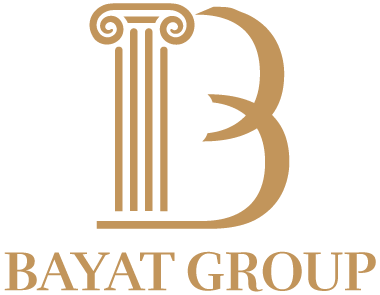An alternative residency or citizenship has become a powerful tool to diversify and secure wealth; to reach a peace of mind regarding the future of your family and to enhance international mobility by getting the right of visa-free travel to various destinations. Internationalizing and developing a business, along with tax optimization perspectives also sustain motives behind the demand on the investment migration market.
For the past couple of decades, second passports have developed into assets, high-net-worth individuals are increasingly investing in. The rich, especially from the countries with less powerful passport in terms of visa-free travel opportunities and unstable socio-economic or political landscape, are most of all interested in attaining so called ‘golden visas’ or ‘golden passports.’
Critics of the citizenship by investment (CBI) schemes say that citizenship can’t be a commodity and the practice of selling passports create security threats and grounds for money laundering, corruption, power abuse and other illicit activities. Meanwhile, the supporters claim that economic citizenship programs help governments to raise the much-needed foreign investment, especially in times of economic or financial crises, and affluent beneficiaries of these programs get possibility to improve their families’ lifestyle and create prerequisites for further development. The crucial factor is Due Diligence (DD) checks and regulations – if all guidelines are preserved and applicant background checks are performed in compliance with the set regulations, then the risks and threats are minimized, argue the supporters.
Complying with investment requirements is not enough to successfully apply for any CBI program. Governments are cautious while granting the citizenship to foreign investors and are always pushing units responsible for processing of CBI applications to conduct a thorough DD and vet all persons included in the citizenship applications. It is logical that countries want to grant their passports to the successful people with good reputations.
The pioneer of the CBI practice is the dual-island federation of St Kitts & Nevis, which launched the economic citizenship program soon after gaining independence from the UK in 1984. Currently, this Caribbean country boasts the ‘platinum brand’ of its CBI program with quick and straightforward application process. The CBI applicants are not required to travel to the country and the citizenship and second passports can be attained remotely. St Kitts & Nevis’ passport holders can travel to around 160 destinations globally without obtaining travel visas in advance, including the EU, the UK, Russia, Turkey and many other regional economic or financial hubs.
St Kitts and Nevis was offering families of four a special discount, allowing them to save up to $45,000, but this offering will expire on December 31, 2021. The minimum investment requirement for a single applicant is $150,000, which goes as a donation (non-refundable) to the Sustainable Development Fund, established by the government. There is also a real estate investment possibility in the scheme, but with an increased minimum investment threshold, which starts from $200,000.
According to the Knight Frank report about one-third of the world’s high-net-worth individuals (HNWI) have already attained alternative residency and citizenship and one-fourth of them is keen to relocate together with their families. The demand for CBI programs is increasing permanently and the Covid-19 pandemic has even more fueled this trend. All major stakeholders of the investment migration industry have been periodically reporting about the increased inquiries about available RCBI programs throughout the pandemic time.
In the pre-pandemic time, the ‘golden visas’ and ‘golden passports’ were considered as assets having of which was desirable, and now, the Covid-19 has moved it into the must category, argue the immigration and relocator experts. If before the pandemic affluent people from all over the world were choosing the place of relocation in accordance to the lifestyle quality, the accessibility of high-level education, security and clean environment, the world-wide health crises and various restrictions imposed because of it have shifted preferences of investors. Today, developed and reliably infrastructure and availability of the quality healthcare services, along with the means to overcome turbulent times and some kind of the future insurance policy, are decisive factors affecting investors’ decisions regarding CBI programs.
Many successful people, especially from Asian and African countries, find second passports as solutions to their obstacles related to the travel and visa issues, as their passports are weak in terms of international travel, compared to those issued by the countries with active CBI schemes. Obtaining visa is a time-consuming and hassle procedure, requiring collection of documentation and visits to the consular sections. Furthermore, nationals of some countries have higher potential of visa-refusals or rejections in the Western countries that might negatively affect their future careers. Enrolling in the CBI program together with the family and attaining second passports is a gamechanger in this regard.
Countries are competing with each other to raise more foreign direct investment. Soon after St Kitts and Nevis, the Commonwealth of Dominica launched its own CBI program, followed by Grenada, Antigua & Barbuda and St Lucia. The passport value and power of these Caribbean countries have tremendously increased after the visa-waiver agreements with the EU were signed, allowing the Caribbean passport holders to travel visa-free in the Schengen Area for up to 90 days in any 180-days period. Another island-nation, but in Oceania – Vanuatu has been also trying to take its share of ‘the investment migration cake’ for the last couple of years. Just recently, Vanuatuan authorities added a real estate investment route with a $200,000 threshold to its CBI program. Before, a non-refundable contribution to the special fund (starting from $130,000 for a single applicant) was the only investment option to qualify for the citizenship.
European CBI schemes are much expensive. For instance, in Montenegro, which will suspend its economic citizenship program by the end of 2021 the minimum investment requirement starts from EUR 350,000 in the less developed north of the country and from EUR 550,000 in the more developed south and capital city of the country. The North Macedonian CBI scheme is less expensive, starting from EUR 250,000, which is actually a non-refundable contribution to the country. Both of these Balkan countries are candidates to join the EU by 2025.
As per EU-member countries Maltese and Cypriot CBI schemes were very popular, but in 2020 Cyprus has suspended its scheme, but still maintains a residency by investment scheme based on a real estate investment starting from EUR 300,000. Malta has reformed its own program, turning so called ‘golden passports’ scheme into ‘residency plus citizenship’ structure. The Maltese authorities have taken into consideration concerns heard in the EU institutions and tightened residency requirements for the program applicants. In order to qualify for Maltese citizenship under the new regulations, a non-EU national has to contribute at least EUR 600,000 the country, plus make a real estate investment either in the form of purchase or rent.
Other EU countries are offering ‘golden visa’ programs. True leaders are Portugal and Greece, but the UK’s immigration schemes are also very popular, together with Spanish and Irish RBI schemes. The least inexpensive program is in Greece, where the threshold for investment in a real estate starts from EUR 250,000, while it is EUR 500,000 in Spain and EUR 280,000 in Portugal.
Investors first of all are taking into consideration the very idea of ‘quality lifestyle’, while selecting a country for the second citizenship or residency. This may include high level of educational institutions, personal and family’s security, access to world-class healthcare services, a desirable climate, clean environment, socio-political stability and opportunities for business expansion.
Various immigration and relocator firms elaborate different rankings measuring the passports’ strength and countries’ attractiveness for investors seeking alternative residency or citizenship. Such ratings are based on various pillars, like country’s international prestige, living standards, visa-free travel opportunities and other kind of systemic data. Some rankings are even analyzing RCBI application procedures, its transparency and timeline, as well as investment requirements and eligibility criterion, including Due Diligence provisions, stay requirements, tax regime, etc.
But, selecting the right country based solely on such rankings is not worthy thing. The world of investment migration is evolving permanently, so does the political and socio-economic environment. Sometimes it is very difficult to calculate intangible advantages of having second citizenship or residency of one particular country. Hence, consultations with a trusted and high-qualified lawyers and immigrations specialists are necessary for not making mistakes. Moreover, people cannot apply directly to most of these RCBI programs, and services provided by the Authorized Agents should be taken. These are the legal entities, law and immigration companies authorized to promote programs internationally and submit applications to them on investors’ behalf.
Almost all programs require from applicants to have a good health and provide full information about source of investing funds. Being convicted or having an entry restriction or a visa refusal in specific countries can be a reason for application failure. Countries want skilled people with good reputation to become the part of their society.
Bayat Legal Services is authorized Agent for the Caribbean and Vanuatuan CBI programs and has a 30-year history and experience in immigration affairs. Therefore, its high-qualified specialists are in a position to guide affluent investors through the whole immigration journey, whether its objective is ‘golden visa’ or ‘golden passport’.

